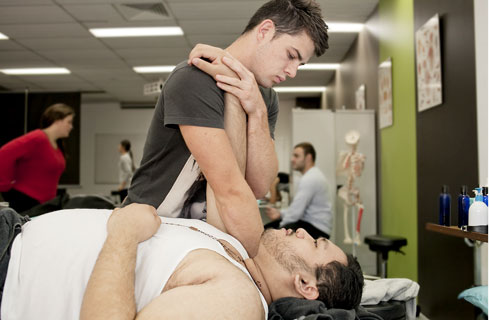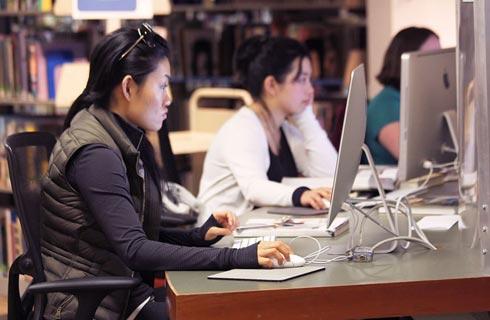文学硕士-电影和媒体研究
Master of Arts (Thesis) - Film and Media Studies

学历文凭
Masters Degree (Research)

专业院系
Division of Humanities

开学时间

课程时长

课程学费

国际学生入学条件
Applicants seeking admission to a programme of study comprising of papers and a thesis (240 points combined) must either
Applicants seeking admission to the programme of study comprising the 120-point thesis only on the basis of completing the degree of Bachelor of Arts with Honours or the Postgraduate Diploma in Arts Subjects or equivalent must:
- be a graduate with an average grade of at least B+ for the appropriate 300-level papers, or
- have alternative qualifications or experience acceptable to the Pro-Vice-Chancellor (Humanities).
- have undertaken a programme of study that provides adequate preparation for the thesis, and have achieved a grade of at least a B+ for the research report, thesis preparation, dissertation requirement, or relevant preparatory papers of the qualification concerned.<>/li>Applicants must normally have achieved an average grade of at least B+ in the papers at the highest level in the programme.
IDP—雅思考试联合主办方

雅思考试总分
6.5
- 雅思总分:6.5
- 托福网考总分:90
- 托福笔试总分:160
- 其他语言考试:Pearson Test of English (PTE) Academic - Overall score of 58 with no communicative skills score below 50.
CRICOS代码: OO0004
申请截止日期: 请与IDP联系 以获取详细信息。
课程简介
Our courses will challenge your thinking, broaden your views and help you develop an increased awareness of the role of media in transforming society and culture. Our mission is to prepare students to engage critically and creatively in an increasingly mediated world and allow them to contribute to their communities and chosen professional field. To serve this goal, our scholarship and teaching is interdisciplinary, inventive and practical. But that is not all that we do. Employers look for life-long skills – written and visual literacy, communication skills, the ability to lead and contribute to teams, and to solve problems through effective research methods. All of these skills are taught in our programmes; they underlie most of what we do. We also value and develop an understanding of cultural diversity and difference, so it is not surprising that our graduates are to be found in many walks of life.Our graduates work in a variety of fields, including media production, journalism, education, advertising, administration, archival and curatorial work, media policy analysis, public relations, and tourism. Some go on to postgraduate study in our honours, master’s and PhD programmes.A degree from our programme prepares you for a wide range of career options, including new and emerging career pathways. In the future, media will play an increasingly central role in how we understand and navigate our rapidly changing world. The skills and competencies developed across our two majors – the ability to think critically, communicate in a range of different ways, appreciate diversity, and respond effectively to change – will be in strong demand.
相关申请
 预科
预科 奖学金
奖学金 实习机会
实习机会 在校学习
在校学习 跨境学习
跨境学习 校园授课-线上开始
校园授课-线上开始 在线/远程学习
在线/远程学习
开学时间&学费
学费信息仅供参考,请与IDP联系以获取详细信息
| 开学时间 | 时长 | 学费 | 地点 |
|---|
学校排名

世界排名201
数据源:
泰晤士高等教育世界大学排名
关于奥塔哥大学

成立于1869年的奥塔哥大学是新西兰第一所大学,拥有丰富而杰出的历史。奥塔哥大学在研究和教学方面享誉世界,在QS世界大学排名中位列全球前1%。奥塔哥大学在商业、健康科学和人文科学等领域提供了大量而多样化的学习选项。学生可以从200多门课程中选择。该大学在就业能力、国际化、教学和研究等方面均被QS评为五星。根据高等教育委员会(TEC)的教育表现指标,奥塔哥大学在学生表现和留存率方面也被评为新西兰第一。这强调了奥塔哥为学生提供的教育质量。该机构在新西兰各地都有校区,在达尼丁、惠灵顿、奥克兰、基督城和因弗卡吉尔都有校区。奥塔哥大学的学生群体也是多元化的,达尼丁校区85%以上的学生来自城市以外,全校有3000名国际学生入学。奥塔哥大学的学生享有良好的毕业成果,95%的学生在毕业后继续深造或就业。
本校相关课程
其他相关课程

传播学学士(新闻学)
 悉尼科技大学
悉尼科技大学学历文凭
Bachelor Degree
开学日期
课程费用总额


数字媒体与传播学士学位
 威斯敏斯特大学
威斯敏斯特大学学历文凭
Bachelor Degree with Honours
开学日期
课程费用总额


MA Digital Media and Society
 卡迪夫大学
卡迪夫大学泰晤士高等教育世界大学排名:204
学历文凭
Masters Degree (Taught)
开学日期
课程费用总额


电影,电视和广播文学(荣誉)文学士学位(基础入学)
 中央兰开夏大学
中央兰开夏大学学历文凭
Bachelor Degree with Honours
开学日期
课程费用总额


新闻,媒体和英语文学(荣誉)文学士学位
 卡迪夫大学
卡迪夫大学泰晤士高等教育世界大学排名:204
学历文凭
Bachelor Degree with Honours
开学日期
课程费用总额


新闻学学士-国际研究学士
 伍伦贡大学
伍伦贡大学泰晤士高等教育世界大学排名:247
学历文凭
Dual Degree
开学日期
课程费用总额










 新西兰
新西兰





